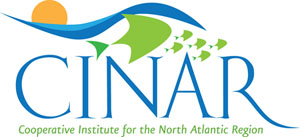Even before Hurricane Irene threatened the Northeast, wind has been a huge discussion topic as different states negotiate the tricky path of considering and siting offshore wind projects.
But the renamed Minerals Management Service (MMS), now the Bureau of Ocean Energy Management Regulation and Enforcement (BOEMRE), is determined that offshore energy will be done right, by engaging states and stakeholders in meaningful dialogue, hearing their concerns and coming to agreements.
BOEMRE manages the mineral resources on 1.7 billion acres of the Outer Continental Shelf (OCS) which includes managing renewable energy programs as well as offshore oil and gas leasing in federal waters.
“We just had an Atlantic Wind Workshop,” said Maureen Bornholdt, Program Manager for Alternative Energy BOEMRE, whose department is concerned with wind energy. “We continue to work with the intergovernmental task force, although it’s a new government…. to understand the issues and concerns for stakeholders, politicians and federal agencies.”
At the workshop in mid-July in Herndon, Virginia, Bornholdt said academics attended to identify data and protocol for possibly siting wind turbines on the OCS.
As part of the Secretary of the Interior’s “Smart from the Start” wind energy initiative to spur renewable energy development on the OCS, the workshop aimed to assist the Department of the Interior’s (DOI) BOEMRE and its federal partners in environmental and technical reviews of wind energy areas and in the evaluation of new projects.
The workshop was also part of the DOI-Department of Energy (DOE), Memorandum of Understanding (MOU) process to coordinate environmental monitoring and baseline studies in support of environmental assessment and consultations for siting and leasing in mid-Atlantic wind energy areas.
Workshop literature listed the goals as: providing an update of recent and ongoing environmental and social sciences research conducted since the Worldwide Synthesis and Analysis of Existing Information Regarding Environmental Effects of Alternative Energy Uses on the Outer Continental Shelf workshop in 2007 and BOEMRE technology and safety studies on renewable energy; identifying key data needs and prioritizing research gaps; and developing partnerships and identifying potential synergies for future studies.
“We’re working on a dialogue in Maine, coordinating with Maine’s own efforts,” said Bornholdt. “In Massachusetts, we had some really exciting developments. We requested input from interested parties and received a lot of feedback from a large area.”
Three public meetings were held in Massachusetts between November 2009 and September 2010. Joint Massachusetts and Rhode Island meetings were held in December and May. BOEMRE also participated in additional public sessions in Massachusetts in February, May and June.
One potential project, Cape Wind, has been under discussion and contention for several years. Cape Wind is slated to cover approximately 25 square miles in federal waters offshore Massachusetts employing 130 3.6 megawatt wind turbine generators with the maximum capacity to produce about 468 megawatts.
“We plan to meet expectations by Governor Deval Patrick regarding concerns over commercial fishing,” said Bornholdt. As part of the good faith negotiations “the secretary and director removed 56 percent of the area from development and extended the comment period for fishermen.”
“Our task force is meeting in January, working with Massachusetts and Rhode Island to educate the public, especially focusing on commercial fishing interests,” said Bornholdt. “We are having a solid public information exchange, building dialogue with communities.”
“It’s different in Massachusetts and Rhode Island than in Maine right now,” she explained. “Maine is not yet focused on specific areas. We will engage with different stakeholders there, because we have no ‘polygon’ in the water there yet.” The polygon is the area within which offshore wind facilities may be sited. Offshore Massachusetts and Rhode Island have two polygons designated.
The April 20 Deepwater Horizon oil well blowout in the Gulf of Mexico revealed a too-cosy relationship between some MMS regulators and the oil companies they were regulating.
Consequently, on May 19, 2010, Interior Secretary Salazar signed a Secretarial Order dividing the MMS into three independent entities to carry out its three missions of 1) ensuring the balanced and responsible development of energy resources on the OCS) ; 2) ensuring safe and environmentally responsible exploration and production and enforcing applicable rules and regulations; and 3) ensuring a fair return to the taxpayer from offshore royalty and revenue collection and disbursement activities. Michael R. Browich was chosen to lead BOEMRE.
“The name change didn’t affect us in the renewable energy program,” explained Bornholdt, since her department doesn’t work with oil leases. She said she welcomes the intensive public discussion.
The agency is charged with coordinating with state, local and tribal governments to issue leases and grants including competitive and non-competitive leasing, commercial and limited leases, as well as oversight throughout a project’s life including payments to cover bonding activities and decommissioning at the project’s end.
On August 17, Interior Secretary Salazar issued a Call for Information and Nominations (Call), available for review in the Federal Register. The Call invites developers to identify locations within an area offshore of Rhode Island and Massachusetts, called the Area of Mutual Interest, in which they seek commercial leases for developing wind projects.
BOEMRE also announced the agency is seeking public comment—through a Notice of Intent to Prepare an Environmental Assessment—on important environmental issues and reasonable alternatives related to the proposed leasing, site characterization and assessment activities in the offshore area under consideration.
Later this fall, a similar Call and Notice of Intent will be issued for an area offshore of Massachusetts, east of the Rhode Island-Massachusetts Areas of Mutual Interest.
The announcement “reflects the kind of efficient, forward-thinking planning we must do to quickly and responsibly stand up an American offshore wind industry,” Salazar said. “By focusing on priority areas with high wind potential and fewer conflicts and conducting early, coordinated reviews, we can accelerate the leasing process and drive investment, development, and jobs to Rhode Island and Massachusetts.”
“It works through interagency stakeholders to identify the issues, confront the issues and have a dialogue,” said Bornholdt. “I’m really encouraged since the bureau hasn’t operated in New England since the early ’80s.”
Links:
Bureau of Ocean Energy Management, Regulation and Enforcement (BOEMRE)
http://www.boemre.gov/offshore/RenewableEnergy/AtlanticWindEnergyWorkshop.htm
http://www.boemre.gov/PublicComment.htm
Print


















